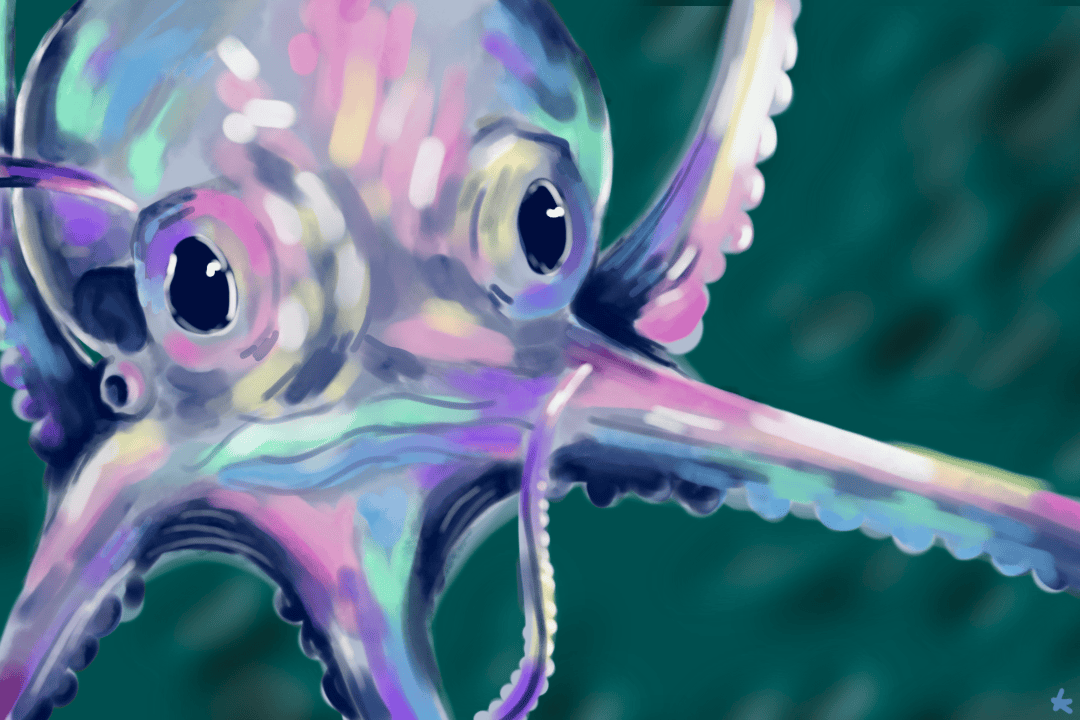“If I were an alien, I would have also chosen to be an octopus.”
That was my first thought while watching Secrets of the Octopus; a National Geographic documentary about this mysterious creature, released in April in honour of Earth Day.
This three-episode series dives into clear and dark waters to show how octopuses are foreign to their own ecosystem. As the “only invertebrate capable of higher order cognitive tasks” according to squid expert Erica A.G. Vidal, octopuses are essentially aliens on the ocean floor.
Executive producer James Cameron takes us through the depths of the ocean in this docuseries. Using footage never captured before, he reveals how octopuses from Australia to Indonesia to Brazil can quickly learn, adapt, and thrive with their unique skills during their short lifespans of up to five years.
For example, at a stop in Vancouver Island, Ant-Man actor Paul Rudd narrates how the resident giant Pacific octopus has arms with hundreds of neurons on each sucker. The arms are controlled by nine brains, which allow the octopus to smell and taste its meals. Born the size of a single grain of rice, this creature grows to the length of a school bus — needing up to six meals a day.
Secrets of the Octopus also reveals how these smart aliens taught themselves to strategize and make creative decisions to survive. I was impressed to see a fist-sized octopus using coconut shells to cover themselves, earning the name ‘coconut octopus.’ I was even more impressed to see these coconut octopuses using clam shells as makeshift shields to defend themselves. It was like seeing a cute eight-tentacled Roman gladiator, holding a shield with two tentacles while using its others to walk along the ocean floor.
Octopuses can also keep a detailed memory of geography by tasting the surfaces around them with their tentacles. This extensive amount of spatial information is processed while they sleep. As the docuseries shows, octopuses exhibit rapid eye movements (REM) — a stage of sleep in which the eyes move randomly — similar to the ones humans do when we dream. This similarity suggests that octopuses might dive into the imaginary dream world as well.
Seeing octopuses possibly dreaming, using tools with creativity, making decisions, and displaying other cognitive skills left me astonished since they are extremely distant from human lineage. The most recent common relative between octopuses and humans was a worm-like animal from which we diverted 750 million years ago. The fact that we are genetically closer to dinosaurs than we are to an octopus is the key scientists are holding onto to understand the evolution of human intelligence.
Nevertheless, another curiosity that shows their intelligence is that they can interact with humans. Octopuses seem to recognize and distinguish different people, even if they wear identical clothes. The documentary shows ‘octopus whisperer’ diver Krystal Janicki holding hands and tentacles with a giant Pacific octopus that left its den to investigate the diver and her underwater videographer. Whenever they returned to the den to film, the same octopus would come out to greet them.
Distinguishing one octopus from another is something that humans might find hard to do, given their superpower to camouflage. Changing the colour of their skin to blend in with their surroundings is an ability called disruptive coloration. This mechanism involves their nervous system releasing pigments contained in their skin cells, upon their reaction to light. Octopuses’ sensitivity to light is used as a defensive mechanism and for males to showcase their beauty to females during mating season.
Octopus reproduction is female-dominated. Female octopuses have the ability — or another potential superpower — to retain sacks of sperm from different males and use one or both sacks to fertilize their eggs. However, female octopus’ pregnancy is extremely rough. Without the help of the male octopuses, they solely watch and protect their eggs carefully, including blowing water over them to keep them oxygenated. Octopuses are semelparous, meaning they reproduce once and then die shortly after. For a female octopus, protecting her eggs occurs alongside self-destruction, as she stops eating while keeping the eggs safe and dies by the time the eggs hatch.
As the docuseries wrapped up, I started to realize that these creatures that are so evolutionarily distant from us can challenge what we understand about consciousness in non-human beings. Without a single bone in their body, octopuses can touch, taste, and navigate their underwater world. They can form ideas and creatively use the things they find around the ocean to protect themselves, but they do so without other octopuses to learn from. This documentary shines a light on our oceans’ mysteries while making us reconsider what it means to be intelligent and dream.
In the end, the well-organized episodes of Secrets of the Octopus highlight the behaviours and attributes that make these creatures true aliens of their habitat. It was a perfect watch for an early Sunday afternoon and I would give it four out of five stars. The footage — like the octopus it featured — was out of this world.



No comments to display.